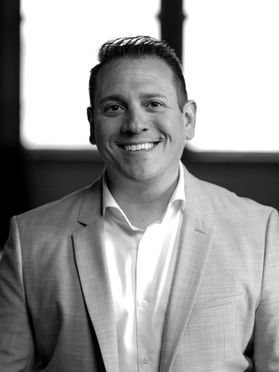Heather E. McGowan
Future of Work Strategist, 2017 Global LinkedIn Top Voice for Education
Teaches:
The Future of Your Work
Heather E. McGowan is a globally recognized future-of-work strategist, author, and keynote speaker who helps leaders navigate the profound shifts shaping education, work, and society. Known for her powerful metaphors and research-backed visual frameworks, Heather brings clarity to the complexities of the Fourth Industrial Revolution—where continuous learning, adaptability, and human-centered innovation are essential for success. Named LinkedIn’s #1 global voice for education in 2017, she has been frequently cited by Pulitzer Prize–winning columnist Thomas Friedman as a leading thinker in workforce transformation.
Heather has advised Fortune 500 companies and global institutions including Autodesk, Biogen, Citi, AARP, and The World Bank. Her academic work has included roles at Rhode Island School of Design, Becker College, and Jefferson University, where she was the strategic architect of the first undergraduate college focused exclusively on innovation. In 2019, she was appointed as a faculty at Swinburne University Centre for the New Workforce in Melbourne, Australia.
As the founder of the think tank Work to Learn, Heather challenges conventional mindsets—arguing that in today’s world, we no longer learn once to work, but must work continuously in order to learn. She is the co-author of The Adaptation Advantage and Disrupt Together and is a contributor to Forbes on the future of work. Her work helps educators and institutions prepare for and adapt to jobs that do not yet exist.

masterclass DESCRIPTION
Future-of-work strategist Heather E. McGowan helps leaders prepare their people and organizations for the Fourth Industrial Revolution. The Third Industrial Revolution was marked by computerization and automation of physical labor, laying the foundation for the Fourth Industrial Revolution, which will be notable for the rapid advancement of technology tools into the domain of human knowledge work. In this world, humans must continuously learn and adapt, and with this transition comes information overload. Heather gives lucidity to this topic through her illuminating graphic frameworks and powerful metaphors, all backed by deep research and books.
masterclass trailer

Program
Career Readiness
For years you have forged partnerships, created pathways, and developed programs…yet we still have empty seats in our classes. While we balance preparing students for both higher education completion and the workforce, it is time to shift our messaging. If you seek broader institutional engagement in your outreach, enrollment management, student recruitment, and marketing efforts, then this masterclass is for you. It’s time to become their first choice.
You can't afford to wait another year.
Getting to Know Heather

1
What was your first job and what did you learn from it
I had a lot of first jobs. I found work interesting even when I was young so I would do jobs until I got the basic rhythm of them and then move
on. My early jobs included: nursing home aid (empathy), bagging groceries (service to others), and camp counselor (watching children master their own agency). First jobs show you how to show up, take responsibility and both do what you are told and figure out what else you may need to do when the directions are not so clear or the need not as defined. I think first jobs are extremely important and more folks should work in junior high and high school to learn to be responsible and accountable not only to others but to themselves.
2
Why career readiness?
I have worked on both the demand (corporate) and supply (education) side of talent development and found neither group was approaching it quite right to meet both the zeitgeist and the market needs.
As a result, I moved to speaking and writing to explain these changes to larger audiences.
3
What missteps would you caution others to avoid when working in career readiness?
Stop hiring for skills and past experience and start looking for people you want to learn with and from. Learning is a social and collaborative act. The future of work is learning. Learning will be part of work. Stop chasing skills gaps. The skills gap will never close and that is a good thing.
A skills gap forms when a human demonstrates a skill and the market values that skill in excess of supply. That is progress. Learning simply needs to be part of work and our progress will depend on our aspirational and unachievable pursuit of closing the widening skills gap.
ORGANIZATIONAL CHANGE
More classes in
See all

"The power to shape the Future of Work lies within our grasp. By embracing this unparalleled opportunity, we can unlock greater human potential and generate unprecedented value."
Heather E. Mcgowan









